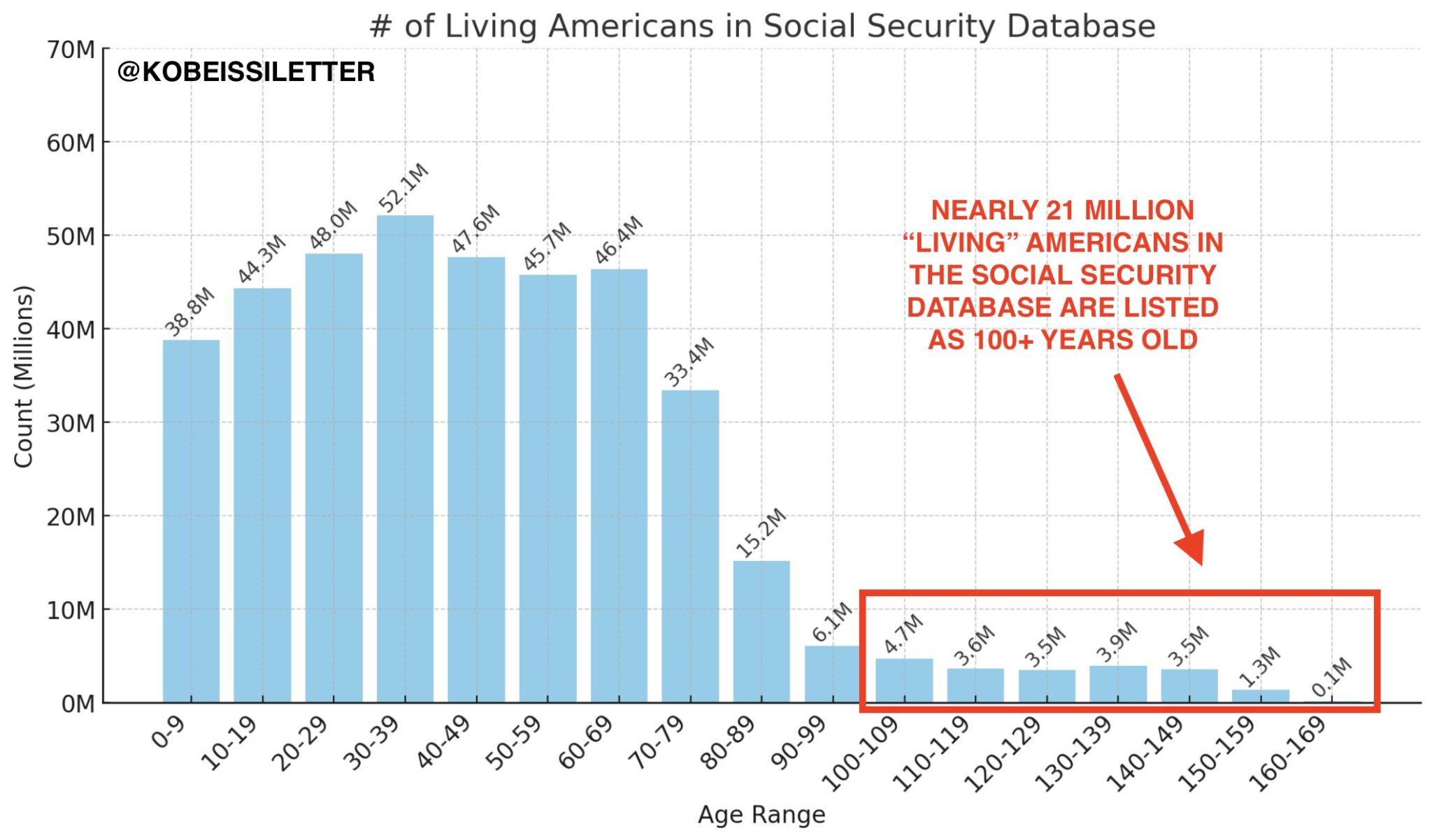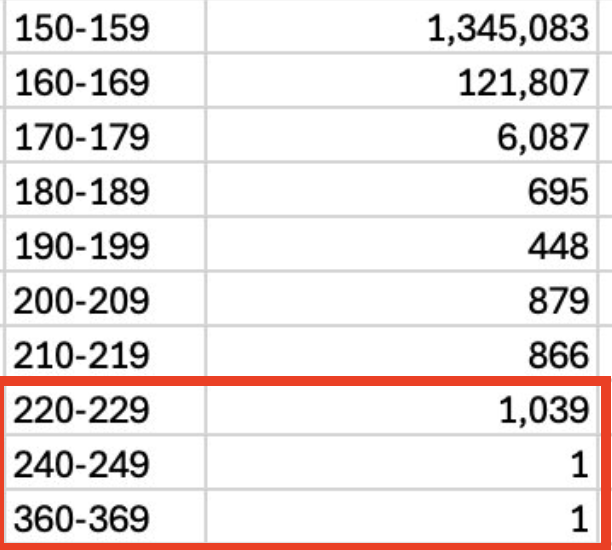
A Monday without the Americans, and everything feels deserted? Hmm, not quite. Yes, the U.S. markets were closed for President’s Day, but we still felt Trump’s presence everywhere. Things are heating up in Europe—Macron is acting like the leader of the continent, testing the waters for his next job in two years. Meetings are being held to discuss war and peace, and the numbers are being crunched to see how much should be spent in the coming months to “strengthen militarily” and protect against the big bad Putin, who is expected to march straight down the Champs-Élysées. Meanwhile, Europe keeps rising.
A day in blue with stars shining in our eyes
In the absence of the Americans—and while Trump was doing laps at Daytona in his official car—European markets focused on the war in Ukraine and how they could be involved in the peace agreements. We won’t get into politics in this column, but let’s just say that ever since Trump 2.0, everything has accelerated. The new American President is shaking things up with a force we’ve never seen before. And since his arrival, the prospect of peace in Ukraine has never seemed so strong. The problem is that his working method is more akin to an Abrams tank division crushing everything in its path rather than a delicate diplomatic approach featuring petits fours and Ferrero Rochers to wrap up the ambassador’s dinner.
Naturally, Europe’s first line of defense isn’t taking this lightly. JD Vance’s speech in Munich last week didn’t go unnoticed, and several ministers across the political spectrum are on the verge of a nervous breakdown because their competence and authority have been called into question. But the one who took it the worst? French President Emmanuel Macron. Given the size of his ego, there was no way he was going to let that slide. So, France organized an emergency meeting with “part of” Europe, since they didn’t think it was necessary to invite the rest—another ego-driven move. However, the only leader on the continent who has never been elected by anyone was, of course, present. No matter. In the end, France got to puff out its chest, and Macron declared that the Europeans would be involved in the peace process alongside the Americans and the Russians (and maybe the Ukrainians). And, of course, it would be a great time to strengthen their defense lines—to show that theirs is bigger than the neighbor’s. Their defense, of course.
In the process, discussions also turned to military budgets and NATO funding needs. We won’t dive into the details, as this is a financial column, after all. But the key takeaway is that between 8:00 AM and 10:00 PM yesterday, everyone managed to convince or self-convince themselves that spending, spending, and more spending on weaponry was the way forward. Suddenly, we all became die-hard fans of defense and arms. Yesterday was THE DAY for the defense sector—or rather, let’s be honest—the war industry.
Building Peace Through War
We are truly living in strange times. This morning, as I read the recap of what happened yesterday in the European markets, I was simply stunned by the overwhelming sense of disconnect from reality displayed by the world’s politicians. Each of them is off in their own corner, polishing their image, criticizing the negotiations set up by the Russians and the Americans—all while shamelessly bootlicking Trump. I wonder at what point we, the citizens, will start realizing that we are being governed by clowns. But let’s move on.
What really matters for financial markets is that the global discussions aimed at bringing peace to Ukraine are triggering the largest wave of military spending in decades.
Yesterday, Thales surged by 7.83%, Dassault was up 6.49%, and the DAX closed 1.26% higher, driven by Rheinmetall’s explosive 14% gain and Renk Group’s 18% increase—all fueled by the “potential increase in defense spending among European countries.” Saab also climbed 16%, while BAE Systems gained 9%. The defense sector is in a full-blown frenzy. But the funniest part? If you focus on the trend, you’ll notice that for the past five years, these stocks have done nothing but rise. And now, over the last two days, it’s no longer just an upward climb—it’s a vertical explosion.
What’s ironic is that not too long ago, ESG investing was being pushed hard. We were told that putting money into the “bad companies” was wrong and that we should instead invest in the “good companies” that respected human life, nature, and the bees. And now? BAM!!! European governments—who are all financially drowning, by the way—have magically found billions to hand over to the “bad companies” to buy tanks, rifles, ammunition, missiles, fighter jets, chemical weapons, and bombs.
And all this? To protect us from the Russians, who are supposedly going to come storming into European capitals in the coming years. And suddenly—POOF! Abracadabra! No one is out here preaching about investing in bees or locally grown organic tomatoes anymore. Suddenly, principles go out the window—as long as it drives the markets higher and brings in cash. I’m not shocked, really. I just realize that all the grand speeches about responsible investing and the “blacklisting” of certain “bad companies” are just a load of nonsense. Even governments don’t care. In fact, especially governments don’t care.
Who Cares? It’s Going Up!
Anyway, all this to say that yesterday, the Americans weren’t around, but we still managed to rally—thanks to NATO, thanks to the war that’s supposedly ending, and thanks to the Russian and American diplomats who flew off to Saudi Arabia to find a way to start talking again. After two years of giving each other the silent treatment, they now have to figure out who gets custody of the kids and how much child support needs to be paid—which, in geopolitical terms, translates to: “Who gets to keep Europe, and who gets the contracts to rebuild Ukraine?” Only after settling that can they start discussing actual peace in Ukraine.
To sum up yesterday’s market action: The rising probability of peace in Europe just triggered the largest wave of military spending and contract buying in the past five years. I bet the dove of peace is currently seeking political asylum in Iceland.
The Rest of the World
Most Asian markets were up this morning. Chinese tech stocks continue to recover ahead of upcoming earnings reports. Goldman Sachs also dropped a massive research paper on artificial intelligence in China, estimating that it could generate an investment boom of up to $200 billion. However, for all its optimism about AI’s growth in China, I don’t think I’ve ever seen so many pages of disclaimers in one report. It’s practically screaming, “Don’t rush in! No urgency! Be aware of the risks! This is not a sure bet!” It honestly reads like a law firm wrote it. But regardless, tech stocks in the region are in demand. Japan is up 0.63%, Hong Kong is soaring another 2%, and China is up 0.29%.
Meanwhile, Australia was slightly down, showing little reaction to the Reserve Bank of Australia’s rate cut. The RBA lowered rates by 25 basis points to 4.10%, easing monetary policy for the first time since November 2020. They claim to have made progress on inflation but remain cautious about the economic outlook. That said, if you read between the lines, there are hints of optimism suggesting they might cut rates again soon.
And now, for the quote of the day from an article I read this morning. A journalist discussing Asian markets wrote:
“Regional markets followed Wall Street’s lead very little, given that U.S. markets were closed on Monday.”
I love the phrase “followed very little”—I mean, yeah, the U.S. markets were closed! How exactly were they supposed to follow them? By shutting down as well? But the best part is that the way it’s phrased makes it sound like the writer isn’t entirely sure whether the Asian markets didn’t follow Wall Street just because it was closed—maybe, just maybe, they followed Wall Street subliminally, as if it were open in some parallel universe. Honestly, this kind of thinking is terrifying.
I’m starting to believe that if we’ve never seen aliens around here, it’s not because they don’t exist—it’s just that they showed up, took one look at us, and thought, Nah, these guys are way too dumb and left.
In Summary
Asia doesn’t care about peace or war in our part of the world. They’re all-in on AI and China’s comeback. Yesterday, they didn’t follow “Wall Street’s lead”—because, well, it was closed. Meanwhile, Europe tried to forge its own path while also stocking up on weapons. Oil is at $71.41, gold is at $2,922, and Bitcoin is still in a coma.
The News of the Day (The Few News of the Day)
For today’s news, we note that the Financial Times is headlining the fact that Europeans can’t agree on whether to send ground troops to Ukraine since the crazy British Prime Minister suggested it. It’s clear that Germany, Italy, Poland, and Spain aren’t exactly thrilled about the idea, whereas the French rooster Manuel Macron seems eager to ride into battle himself to scare the Russians—let him go ahead, we’ll join him if everything turns out fine.
Meanwhile, in the real world (not the Care Bears fantasy of European politics), Honda has agreed to resume merger talks with Nissan, but only if Nissan’s CEO steps down first. This whole thing feels like kindergarten-level drama, but if that’s the price for a merger, so be it.
Apart from that, a Delta Airlines plane flipped over during landing in Toronto—everyone made it out alive. Meanwhile, the Argentine President is facing backlash for endorsing a meme coin. Not everyone can be Donald Trump…
Meanwhile, Zelensky at work, proposing the creation of a European army because, according to a source close to the matter—which, let’s be honest, means himself—Vladimir Putin is “not at all ready to negotiate.
And on the topic of the Fed, interest rates, and inflation—because YEEEES, while politicians are busy fighting over who gets the most war toys that make loud noises and kill people, inflation is still here, and tariffs remain a hot topic. Michelle Bowman, a member of the Fed, stated that the U.S. central bank will need to remain patient regarding potential rate cuts. She warned against a premature “declaration of victory” over inflation.
Waller, another Fed official, also spoke yesterday, emphasizing that policymakers need to keep a cool head when it comes to rates and not rush into anything. It sounded like a Goldman Sachs analysis with 143 pages of disclaimers.
Numbers, Numbers, Numbers
On the numbers front, we’ll have the CPI in France—not that anyone cares anymore since inflation has been vanquished by Sir Macron. There will also be the ZEW index for Germany and Europe, the last German ZEW under Scholz, who should be unemployed by Monday.
Across the Atlantic, we’ll see the New York Empire State Manufacturing Index, and both Fed members Daly and Barr will be speaking. And of course, President Trump is expected to speak tonight. You never know what he’ll come up with—maybe something about social security fraud?
After all, Musk’s team has somehow found 21 million Americans over 100 years old still receiving social security benefits. Among them, 1,345,000 are still enjoying their checks at the ripe old age of 150 to 159 years, and—get this—there’s even one person still cashing in at the age of 360 to 369 years old! Damn, I knew Highlander was a documentary and not a work of fiction!


All this to say that we’re living in truly remarkable times. Absolutely fantastic. We just can’t get enough of it.
Maybe, in today’s big news, we’ll even see Bayrou resign.
Aside from that, I apologize for talking a bit too much about geopolitics, but since it’s pretty much the main topic, I didn’t really have a choice. Let me take this opportunity to remind you that the world of finance rests on three pillars: Macroeconomics, Microeconomics, and Geopolitics.
So now we officially know that the central pillar of the markets is geopolitics. Since nobody cares about macro or micro anymore, everything would have collapsed a long time ago if geopolitics weren’t at the heart of the wonderful world of finance. Unless, of course, it’s Trump holding it all together—who knows!
Until then, have a fantastic day—and don’t forget that in after-hours trading, Nvidia is above $140, having regained $700 billion in market cap since the DeepSeek affair. Also, by tonight, the S&P 500 and Nasdaq should close at all-time highs.
As for everything else—we’ll meet again tomorrow for new adventures. I’m off to the mountains!

